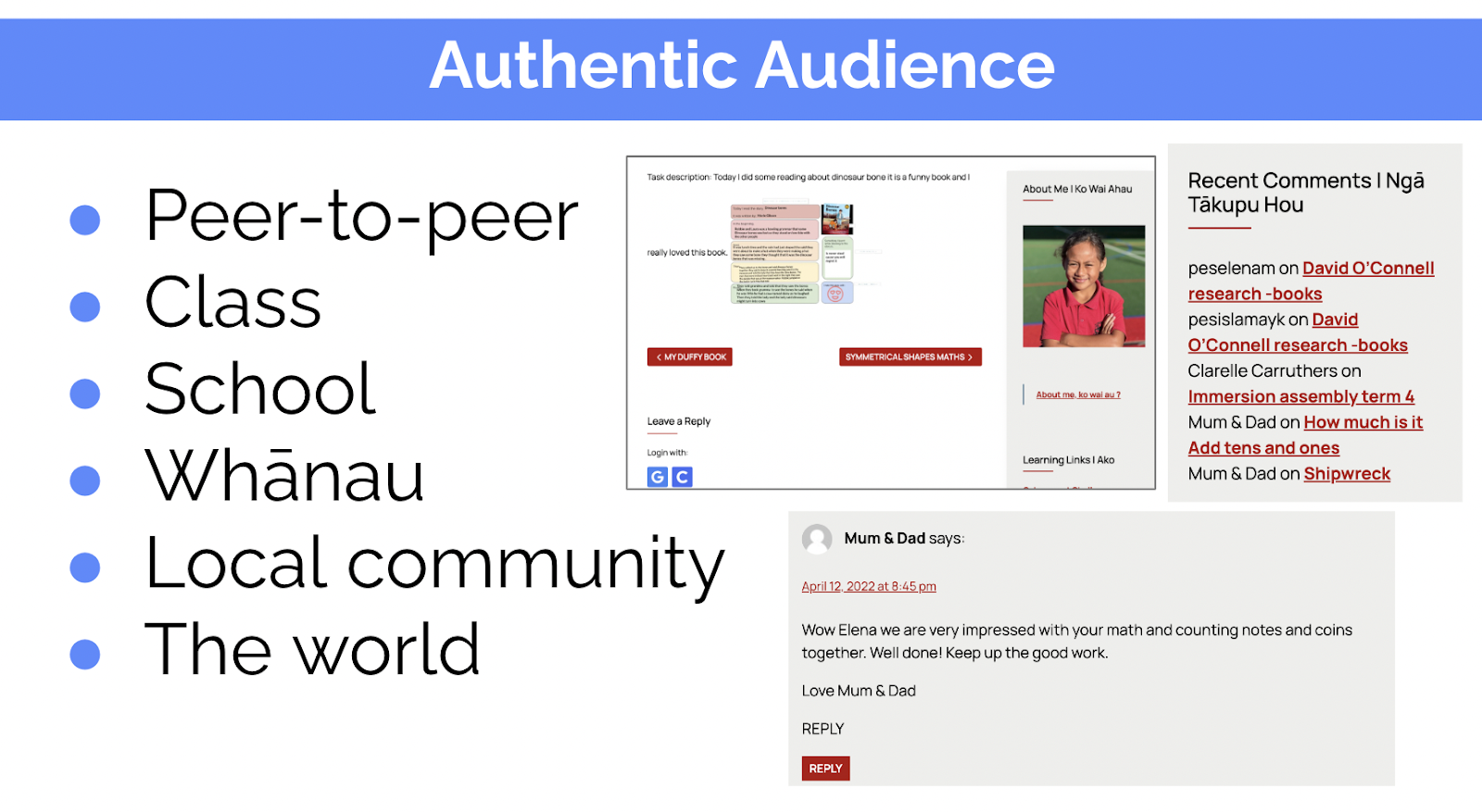Today's session was the final RPI (Reading Practice Intensive) session for the year. The focus was on ‘Sharing’. Throughout the past 9 sessions we have received multiple opportunities to enhance our practice when it comes to planning, creating and delivering a robust, interesting and multi-layered reading programme for our students. Naomi, Georgie, Toni and Vicki have been amazing at walking us through the RPI sessions which have been pretty intense at times.

In regards to the focus on ‘Sharing’, we were reminded about the importance of student voice and how student blogs were a platform where students could share evidence of their learning, and share their authentic voice. Student blogs capture a record of student learning over time and is a great way for whanau to see and connect with what their children are learning at school.

Research also found that blogging frequency impacts on student learning. So this is something to keep in mind when encouraging students to post their learning on their blog. In our team of year 5 & 6 learners, one of our teachers (Ms Parrant) creates a holiday blogging programme for our students. We will be encouraging as many students as we can to continue blogging throughout the next holidays.
Once again we were reminded that we needed to design learning with the end in mind. This includes planning for ambitious outcomes, planning to use diverse texts, teaching learners to think critically and designing rich ‘Create’ experiences.
We reflected on how feedback needed to be useful and practical for students and how we needed to plan time for this to happen regularly. Regular feedback to children is important. As teachers we need to organise a system to do this, so that it’s useful for our students but does not create too much extra work for teachers. Upon reflection, I provide lots of oral feedback (usually on the spot) for students and need to work on providing more written feedback on student work or on their blogs.
Tracking student workflow is something that I need to improve. I often have a spreadsheet where students can add the link to their learning tasks, but I have not always been consistent with monitoring this.
One of the final things that we talked about today was the importance of involving whanau when it comes to reading. This is something that I have been mindful of in my own class this year. The students in my literacy group are reading below their expected level, so it was important that whanau could be involved where possible.
I have tried to connect with as many parents as possible to encourage them to help their child read more at home. Even though my students are in year 6, I have a large group of students (15) who take book bags home with notebooks for parents to sign each time they read at home. I also encouraged parents to complete a google survey related to their child's reading during the last parent interviews.
I really like the following image below as this has been my inquiry focus this term which was to improve student engagement and achievement in literacy. It is about working with learners to establish an authentic audience for their learning outcomes. This is the whole purpose of the 'Share' part of our 'Learn, Create, Share' pedagogy.
Students need to see the purpose of posting their learning on their blog. The Holiday Blogging Summer Learning facilitators ensure that students receive comments each time they post on their blog. My goal is to use the Teacher Dashboard feature where the Edublog posts are visible to help me to leave comments on work that has been recently published. Another goal is to post constructive feedback more regularly on student blogs.
Finally, upon completing the Manaiakalani RPI programme I need to consider how to implement the ideas, resources and tools that I have learnt to enhance my reading programme. The image below is a reminder that effective planning is essential to ensure that there are multiple opportunities for students to develop their vocabulary skills, critical thinking skills, student voice, reading strategies and more. This means that there needs to be careful layering across the reading model.
I am very grateful to have been selected to be part of the Manaiakalani RPI programme even though I didn't really know what I was getting into. Thank you to our facilitators, special guest speakers, mentors and colleagues. I look forward to putting many of these new ideas and resources into practice as part of my reading programme.






